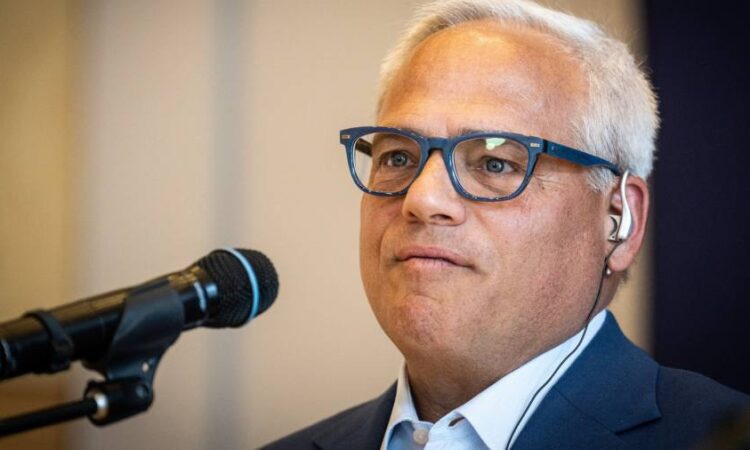
Receive free Semiconductors updates
We’ll send you a myFT Daily Digest email rounding up the latest Semiconductors news every morning.
GlobalFoundries has criticised subsidies that Berlin is preparing to offer the US chipmaker’s bigger Taiwanese rival TSMC for a planned plant in the east German city of Dresden.
Thomas Caulfield, GlobalFoundries’ chief executive, told the Financial Times that the company welcomed competition “on a level playing field” but warned these funds to TSMC will distort competition.
“However, if a subsidy benefits one dominant player disproportionately, there is a real risk of dependence on a single supplier, market foreclosure and less resilient supply chains as a consequence,” Caulfield said.
Taiwan Semiconductor Manufacturing Company, the world’s biggest contract chipmaker, declined to comment on Caulfield’s remarks.
A spokesperson for the German government said all state aid was subject to approval by the European Commission, which reviewed it to ensure “it doesn’t distort competition within the EU single market”.
Germany has attracted massive investment into its semiconductor industry in recent months; Intel last month announced it would spend a total of €30bn on two new plants in the eastern city of Magdeburg, up from an original price tag of €17bn.
GF and STMicroelectronics this month unveiled plans to team up to build a chip factory in France, a multibillion-euro project that will receive significant government support. That and the Intel investment are seen as pivotal to EU plans to double the bloc’s share of the global semiconductor market from less than 10 per cent today to 20 per cent by 2030.
Some economists have raised concerns about the scale of the subsidies Olaf Scholz’s government has offered in efforts to lure tech companies to Germany, saying they are a waste of taxpayers’ money. Intel increased the volume of support for its Magdeburg project from €6.8bn to €9.9bn after complaining about rising energy and construction costs.
Taiwan’s TSMC is widely expected to become the next global player to announce plans for a big investment in eastern Germany in the coming weeks although it has consistently refused to publicly divulge details of its plans.
Industry experts say TSMC will receive financial support under the European Chips Act, which aims to mobilise more than €43bn in public and private investment for the industry. The company declined to comment on its plans for Dresden.
But TSMC’s imminent arrival has raised concerns among competitors that are already present in Germany, principally GlobalFoundries. GF operates in the same market segment and produces chips that are used widely in the German automotive industry.
GF has been in eastern Germany for decades — its former parent company AMD first came there in 1996. The company, in the fourth year of a big expansion of its wafer manufacturing capacity at its Dresden site, was privately owned by Mubadala Investment Company, the sovereign wealth fund of the United Arab Emirates, until an initial public offering in October 2021.
Caulfield said it was “crucial” to ensure that “any government investment promotes healthy competition and does not inadvertently distort it”.
The spokesperson noted that GF was receiving government subsidies, under the auspices of a scheme called important project of common European interest. IPCEI permits EU member states to join forces to back big innovative projects without flouting the bloc’s state aid rules.
GF received about €400mn under the first round of IPCEI grants and is waiting for an update on further funding.
“GlobalFoundries is one of the companies that is being supported under the [IPCEI] framework and will be in future, too,” the spokesperson said.
Martin Dulig, economy minister of Saxony, the state of which Dresden is the capital, dismissed GF’s criticism of the subsidies for TSMC. “If the EU wants to raise its share of chips production from 8 to 20 per cent, then there will be enough room for all providers to thrive,” he said.
Additional reporting by Kathrin Hille in Taipei






